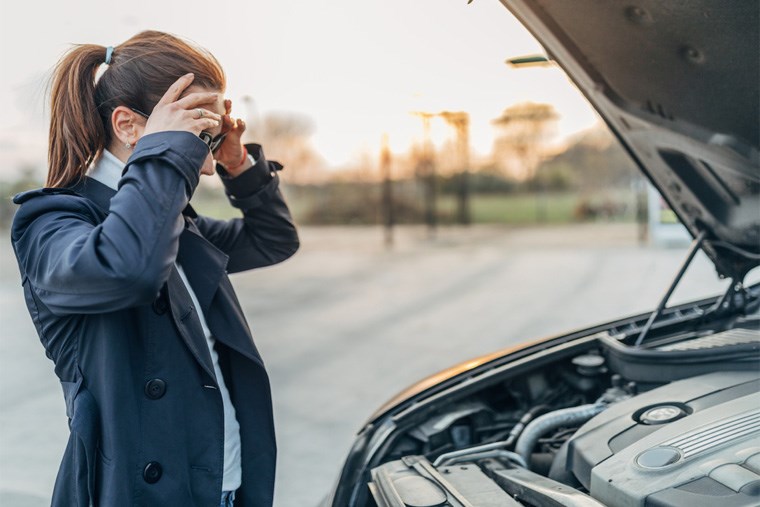There’s nothing worse than getting into your car, turning the key, and finding out it won’t start. Unfortunately, vehicle trouble can strike when you least expect it and typically when it’s most inconvenient.
Luckily, there are ways to help get your engine up and running the next time it’s stubborn. Below, we’ll teach you what causes a car not to start, tricks to get it going on your own, and how to know when to seek out an expert. With our help and a little luck, you’ll never get stuck on the road again.
Why Won’t Your Car Start?
Numerous issues can lead to your engine not turning over. Here are some of the most common reasons and how to try and troubleshoot the problem yourself.
Dead Battery
One of the most common problems is a dead battery. While it’s more frequent in cold weather, old or neglected batteries will lose capacity over time and eventually be unable to start the vehicle.
Carrying jumper cables will help you get your vehicle back on the road if someone is around to help - but there are numerous products available to jumpstart your ride by yourself. Consider buying a portable jumper battery to always have enough juice when you turn the key.
Connection Issues
Dirty batteries and loose or corroded cables can also lead to issues when trying to start your car. It’s important to pop the hood occasionally and make sure everything is clean and connections are tight.
Cleaning battery terminals and cables will improve the connection and ensure that the current can pass freely. Use an old toothbrush with some baking soda mixed with water to scrub contacts clean.
If cables look corroded or you can see exposed wires, replace your cables immediately. After cleaning or replacing them, make sure to reconnect them snugly.
Alternator Issues
Your vehicle’s alternator regulates current to your battery and is a common cause for cars not starting. If you notice your interior lights are dimmed or have problems with your sound system, your alternator might be trying to warn you.
There aren’t many DIY options to get started if your alternator has failed. You may be able to jumpstart your vehicle, but you’ll want to take it to a mechanic as soon as possible. A faulty alternator can damage your battery as well, making it costly to ignore.
 Hirurg via gettyimages.com
Hirurg via gettyimages.comOther Vehicle Starting Tricks
Other than getting a jump, there are other tricks that some people swear by. Consider giving these ideas a try if all else fails.
Starter Tap
If you’re familiar with what’s under your vehicle, tapping your starter with a hammer might be the ticket. This helps free up electrical contacts and has been a go-to for truck owners for years.
Key Cycle
If you suspect your battery is weak, you can try cycling the key to get it going again. Repeatedly turn the key to the start position, between 10-15 times, and wait about five minutes. If you’re lucky, your engine will fire up on the next try.
Pedal Tricks
In many cases, repeated attempts to start a vehicle can flood the engine. To help relieve this issue, push the accelerator pedal to the floor while turning the key. Fuel issues are a rare reason for a car not to start, but if it’s cold, try putting the pedal halfway down while you turn the key to help get started.
Preventive maintenance is usually the key to reliability. Car batteries can wear out in as little as three years, so frequently check their health to avoid becoming stranded.
When a vehicle doesn’t start, there’s always an underlying issue that needs to be addressed. At the very least, visit an auto parts store to have a diagnostic test completed - this will help you identify the issue and develop a plan. Don’t rely on starting tricks long-term, and try to address any problems immediately. With proper maintenance, emergency tools, and a few tricks up your sleeve, you’ll be able to stay on the road and never need a tow again.
 This story was made possible by our Community Partners Program. Thank you Cam Clark Ford Canmore for helping to expand local news coverage in Alberta. Learn more.
This story was made possible by our Community Partners Program. Thank you Cam Clark Ford Canmore for helping to expand local news coverage in Alberta. Learn more.



